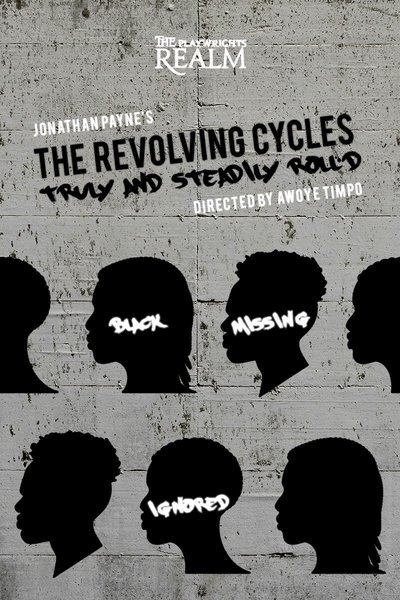
Critic Reviews (9)
“In both style and content Payne tries to do too much, even though his chief concern, the hole left in society when its young black men disappear, is important and powerful...Audience participation is like plutonium; it needs to be handled delicately. Ideally, it is narrowly tailored to drive home the point of the play...The metatheatrics of ‘Revolving Cycles’...do the opposite: They undermine...That’s a shame because the scenes that don’t try so hard to be clever are so good."
Read more
"Doesn't break the fourth wall so much as completely dismantle it. From its very first moments, the play insists that the audience participate in the action, no matter how uncomfortable that becomes...Through Payne’s poetic language and keen psychological insight, the people of the Oblong seem multidimensional and real, even when they are pushed to their limits. They’re embodied by a stellar cast...Awoye Timpo's production is funny, heart-wrenching and profoundly disturbing."
Read more
"Payne is undaunted by accusations of Brechtian pretension: Actors directly address the audience to comment on the play, and helpful projections tell us what will occur in each scene before it takes place...While some viewers might find this style of undergraduate metatheater off-putting, the play keeps us engaged due to director Awoye Timpo's fully committed and tightly staged production."
Read more
"'The Revolving Cycles' merely repeats points made more strongly in a several other recent dramas...Occasionally, Payne lands a jab that truly stings...But the lack of drama proves debilitating, and the director is unable to save the action from a general listlessness...At moments when 'The Revolving Cycles' should provoke, it sometimes turns dismayingly coy...In any case, the cast works hard and honorably at inhabiting the denizens of this sometimes fuzzy, ill-defined dramatic universe."
Read more
"The cast, made up of a stellar crew of talented professionals, brings authenticity to the maximum, pulling us heavily into Payne’s social experiences as he writes from his witty and distraught heart and mind...Particularly relevant and well-crafted by Payne are the illusionary stereotypes that we...tend to jump to quick judgement of pointing the finger of guilt, just like Karma, but we all find the tables turn just as quickly, knocking Karma’s accusations and blame solidly to the floor."
Read more
"The two women, both portrayed by extraordinary actresses — Kara Young as Karma, Lynda Gravátt as Madam Profit — more or less compete to dominate the play by Jonathan Payne, who is making an arresting New York debut...These scenes present a picture of individual and systemic neglect and indifference, although most of these characters are at least somewhat well-meaning."
Read more
"Taking more than a few pages from Brecht's playbook, Payne names the mortician Profit and blames the Oblong's woes on the ruthlessness of capitalism. He also breaks the fourth wall with direct interactions with the audience...It isn't the kind of theater I usually like but I was fascinated by the passionate intensity with which Payne...makes his case about the not-so benign neglect of these young people...The cast, most of them playing multiple roles, transforms his thesis into vivid life."
Read more
"Director Awoye Timpo keeps the action moving at a crisp pace, and elicits performances of great truth and authenticity...Despite terrific performances throughout, and trenchant treatment of a devastating story and situation, a good portion of the play remained clinical to me—perhaps the product of its social worker-cum-playwright—and its metatheatrical devices are so frequently and bluntly employed that they tend to dull in effect."
Read more







